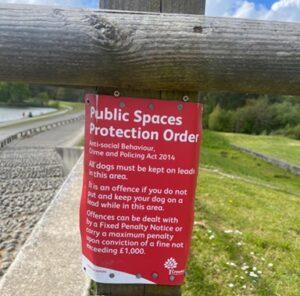In the United Kingdom, websites must comply with several legal requirements to operate legally.
The three main pieces of legislation governing websites in the UK are the General Data Protection Regulation (GDPR), the Data Protection Act 2018, and the Companies Act 2006.
In addition, public bodies and the government have specific requirements regarding the information they must publish on their websites.
In this article, we will explore what information must be included on a website to comply with UK law and the specific requirements for public bodies and government websites.
General Data Protection Regulation (GDPR) and Data Protection Act 2018
The General Data Protection Regulation (GDPR) is a regulation of the European Union that became effective on May 25, 2018. The GDPR governs the collection, processing, and storage of personal data by companies operating within the EU. The GDPR applies to all companies that handle personal data, regardless of their size or location.
The Data Protection Act 2018 (DPA) is the UK’s implementation of the GDPR. It provides further detail on how the GDPR is applied in the UK and sets out specific requirements for companies operating within the country. The DPA replaced the Data Protection Act 1998 and was designed to modernize data protection laws in the UK.
To comply with the GDPR and DPA, websites must include several pieces of information.
First, websites must provide a privacy policy that details how personal data is collected, processed, and stored. The privacy policy must include information on the legal basis for processing personal data, the categories of personal data collected, and how long personal data will be stored.
Second, websites must obtain consent from users before collecting, processing, or storing personal data. Consent must be explicit and freely given, and users must have the right to withdraw their consent at any time.
Third, websites must provide users with access to their personal data upon request. Users have the right to view their personal data, request corrections to their personal data, and request the deletion of their personal data.
Companies Act 2006
The Companies Act 2006 is a UK law that governs the operation of companies within the country. The act sets out specific requirements for companies’ websites, including information that must be displayed on the site.
All companies must include the following information on their website:
- Company name, registration number, and registered office address
- Contact information, including email address and telephone number
- The names of the company’s directors
- Information on the company’s share capital, including the number of shares and the rights attached to each class of share
- Information on any charges or mortgages held over the company’s property or assets
In addition to this basic information, public companies must also include the following information:
- Details of the company’s auditor, including their name and address
- Information on any political donations made by the company
- Information on the company’s remuneration policy
Public Bodies and Government Websites
Public bodies and the government have specific requirements regarding the information they must publish on their websites. These requirements are set out in the Freedom of Information Act 2000 and the Transparency Code 2015.
The Freedom of Information Act 2000 requires public bodies to provide information upon request, and many public bodies choose to publish information proactively on their websites.
The Transparency Code 2015 sets out specific requirements for the publication of information by local authorities.
Public bodies and government websites must include the following information:
- Contact information, including email address and telephone number
- Information on the organisation’s structure and governance
- Budgets and spending information, including details of contracts and tenders
- Details of any regulatory or inspection reports
- Policies and procedures, including those relating to data protection and freedom of information
- Details of any consultations or public engagements
Read the reviews of Gavin Howe Barrister
“He is awful, underhanded and should not be practising law!”
Latest Articles
- Direct Access BarristerA Direct Access Barrister, also known as a Public Access Barrister, enables members of the public to directly instruct a… Read more: Direct Access Barrister
- What is a Public Spaces Protection Order (PSPO)?A Public Spaces Protection Order (PSPO) is a powerful tool introduced in 2014 under the Anti-Social Behaviour, Crime and Policing… Read more: What is a Public Spaces Protection Order (PSPO)?
- Transparency and Open Justice BoardThe Lady Chief Justice of England and Wales, Dame Sue Carr, has created a new Transparency and Open Justice Board.… Read more: Transparency and Open Justice Board
- What is a Paralegal ?A paralegal is a legal professional who performs tasks that require knowledge of legal concepts but does not hold the… Read more: What is a Paralegal ?




